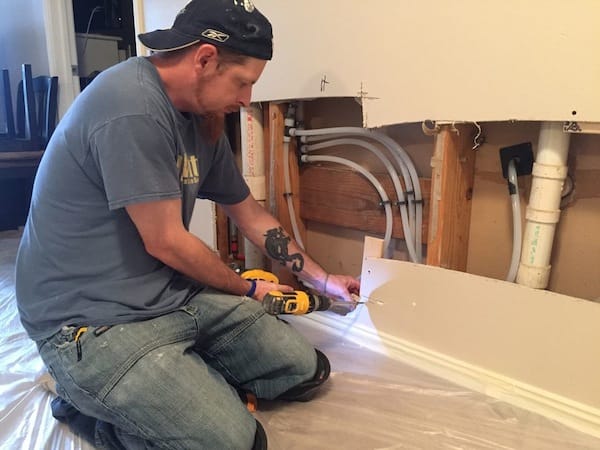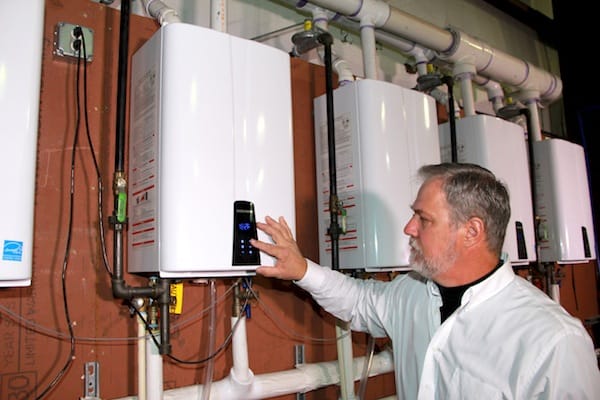Running a successful plumbing business requires more than just technical expertise; it involves a deep understanding of business operations, customer service, and industry best practices. Whether you’re a seasoned professional or just starting, adhering to best practices can enhance your business’s efficiency, reputation, and profitability. Here are essential best practices every plumbing business owner should know.
1. Stay Updated with Industry Standards and Regulations
The plumbing industry is governed by various standards and regulations to ensure safety and quality. It’s crucial to stay updated with these regulations, including local building codes, environmental regulations, and health and safety standards. Regularly review updates from organizations such as the American Society of Plumbing Engineers (ASPE) and the International Association of Plumbing and Mechanical Officials (IAPMO).
Practical Tips:
- Attend industry seminars and webinars.
- Subscribe to industry publications and newsletters.
- Join professional organizations and participate in their events.
2. Invest in Quality Tools and Equipment
Using high-quality tools and equipment is essential for performing plumbing tasks efficiently and effectively. Investing in reliable tools can prevent delays and reduce the likelihood of errors, leading to improved customer satisfaction and fewer callbacks.
Practical Tips:
- Research and invest in durable, high-performance tools.
- Regularly maintain and service your equipment to ensure longevity.
- Train your team on the proper use and care of tools and equipment.

3. Implement Comprehensive Training Programs
Ongoing training is vital for keeping your team’s skills sharp and ensuring they are knowledgeable about the latest techniques and technologies in plumbing. A well-trained team can handle complex issues more effectively, which can set your business apart from competitors.
Practical Tips:
- Provide regular training sessions and workshops.
- Encourage certification and continuing education courses.
- Conduct hands-on training to reinforce theoretical knowledge.
4. Focus on Customer Service
Exceptional customer service is a cornerstone of a successful plumbing business. Building strong relationships with customers can lead to repeat business, positive reviews, and referrals.
Practical Tips:
- Train your staff to communicate effectively and professionally with customers.
- Implement a customer feedback system to gather insights and improve services.
- Be responsive and address customer concerns promptly.
5. Adopt Effective Marketing Strategies
Marketing is essential for attracting new customers and retaining existing ones. Utilize both traditional and digital marketing strategies to increase your business’s visibility and reach.
Practical Tips:
- Develop a user-friendly website with detailed information about your services.
- Utilize social media platforms to engage with your audience and showcase your work.
- Implement search engine optimization (SEO) strategies to improve your online presence.
- Don’t forget old-school methods like mugs with your logo on it.
6. Utilize Technology for Efficiency
Embracing technology can streamline your operations and improve efficiency. From scheduling and invoicing software to advanced diagnostic tools, technology can enhance various aspects of your business.
Practical Tips:
- Invest in plumbing software for scheduling, billing, and customer management.
- Use diagnostic tools and apps to quickly identify and resolve issues.
- Implement a digital inventory management system to keep track of tools and supplies.
7. Prioritize Safety
Safety is paramount in the plumbing industry. Implementing strict safety protocols can prevent accidents and injuries, protecting your employees and clients.
Practical Tips:
- Conduct regular safety training sessions and drills.
- Equip your team with personal protective equipment (PPE).
- Develop and enforce a comprehensive safety policy.
8. Maintain a Strong Online Presence
In today’s digital age, having a strong online presence is crucial for attracting and retaining customers. Your website and social media profiles should reflect your professionalism and expertise.
Practical Tips:
- Regularly update your website with new content, including blogs and customer testimonials.
- Engage with customers on social media by sharing tips, project highlights, and promotions.
- Monitor online reviews and respond to feedback promptly.
9. Offer Competitive Pricing
Competitive pricing can help you attract more customers without compromising on quality. Conduct market research to understand the pricing strategies of your competitors and adjust your rates accordingly.
Practical Tips:
- Regularly review and adjust your pricing based on market trends.
- Offer transparent pricing and detailed estimates to build trust with customers.
- Consider providing discounts or loyalty programs to encourage repeat business.

10. Build a Reliable Network of Suppliers
Having a reliable network of suppliers is essential for ensuring you have access to quality materials and equipment. Strong relationships with suppliers can also lead to better pricing and priority service.
Practical Tips:
- Research and select reputable suppliers with a track record of reliability.
- Negotiate contracts to secure favorable terms and pricing.
- Maintain good communication and promptly address any issues that arise.
11. Implement Efficient Scheduling and Dispatching
Efficient scheduling and dispatching can enhance your team’s productivity and ensure timely service delivery. Utilize scheduling software to optimize your workflow and reduce downtime.
Practical Tips:
- Use scheduling software to automate and optimize appointment bookings.
- Implement GPS tracking for your fleet to improve dispatching efficiency.
- Train your team to manage their time effectively and adhere to schedules.
12. Focus on Sustainability
Sustainability is becoming increasingly important in the plumbing industry. Implementing eco-friendly practices can attract environmentally conscious customers and reduce your environmental impact.
Practical Tips:
- Offer eco-friendly plumbing solutions, such as water-saving fixtures and energy-efficient systems.
- Educate customers on sustainable practices and products.
- Reduce waste and recycle materials whenever possible.
13. Monitor and Improve Business Performance
Regularly monitoring your business performance can help you identify areas for improvement and implement effective strategies. Use key performance indicators (KPIs) to measure your success and make data-driven decisions.
Practical Tips:
- Track KPIs such as customer satisfaction, job completion times, and revenue growth.
- Conduct regular performance reviews and adjust strategies as needed.
- Use customer feedback and industry benchmarks to set realistic goals.
14. Maintain Professionalism
Professionalism is crucial for building a positive reputation and earning the trust of your customers. Ensure that your team represents your business in a professional manner at all times.
Practical Tips:
- Establish a professional dress code and grooming standards.
- Train your team on proper etiquette and communication skills.
- Ensure that all interactions with customers are courteous and respectful.
15. Plan for Business Growth
Planning for growth is essential for the long-term success of your plumbing business. Develop a strategic plan that outlines your goals and the steps you’ll take to achieve them.
Practical Tips:
- Identify potential areas for expansion, such as new services or markets.
- Invest in marketing and branding to increase your visibility.
- Consider forming partnerships or acquiring other businesses to expand your reach.
16. Ensure Financial Management and Planning
Effective financial management is crucial for the sustainability and growth of your plumbing business. Proper budgeting, accounting, and financial planning can help you manage cash flow, reduce expenses, and make informed decisions.
Practical Tips:
- Create a Budget: Develop a detailed budget to track your income and expenses. This helps in forecasting future financial needs and avoiding overspending.
- Use Accounting Software: Invest in reliable accounting software to streamline financial tracking and reporting. This can also help identify areas where you can save money.
- Hire a Professional: Consider hiring an accountant or financial advisor to assist with complex financial matters and tax planning.
- Monitor Cash Flow: Regularly monitor your cash flow to ensure you have enough funds to cover operating expenses and invest in growth opportunities.
- Set Financial Goals: Establish short-term and long-term financial goals, and create a plan to achieve them. Regularly review and adjust your goals based on your business’s performance.
Effective financial management ensures that your business remains profitable and can withstand economic fluctuations. By keeping a close eye on your finances, you can make strategic decisions that support growth and sustainability.
Conclusion
Adhering to these best practices can help plumbing business owners enhance their operations, improve customer satisfaction, and achieve long-term success. By staying updated with industry standards, investing in quality tools and training, prioritizing customer service, and embracing technology, you can build a reputable and profitable plumbing business. Remember, the key to success lies in continuous improvement and adaptation to the ever-evolving industry landscape.




Join the conversation: